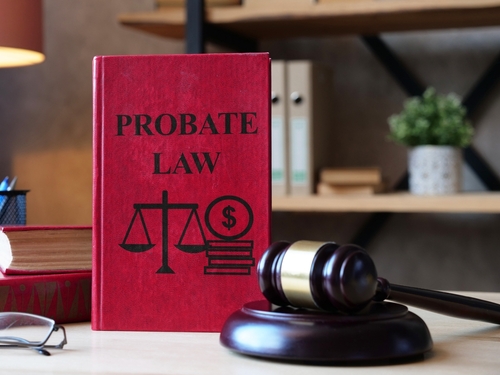Tag: Naperville estate planning attorney
How Should You Manage Foreign Tax Treaties in Your Estate Tax Plan?
Posted on March 27, 2025

In today’s increasingly interconnected world, many multicultural and international families have assets around the world. Expats, U.S. citizens married to noncitizen spouses, global families splitting their time between the United States and other countries, and international investors in the United States all require estate planning strategies that take into account foreign tax treaties. High-net-worth individuals who fit this bill are particularly vulnerable to international taxation issues. These cross-border estate taxation issues make estate planning for global families complex and require thoughtful planning. An experienced Naperville, IL estate planning attorney can […]
Building a Liquidity Plan Into Your Estate
Posted on March 17, 2025

When creating your estate plan, it is important to keep multiple factors in mind, from the values that drive your estate plan, to the individuals and entities that you want as beneficiaries, to the way you want to utilize the estate plan to ensure that your wishes about your health are executed when you are no longer able to do so. Likewise, the need to incorporate tax considerations into an estate plan is widely known, as is the role of charitable giving in estate planning. However, there is an additional […]
How to Balance Family and Philanthropy in Your Estate Plan
Posted on February 28, 2025

Estate planning for high-net-worth individuals involves more than just asset distribution and tax considerations — it is an opportunity to shape your legacy. Many affluent families wish to support charitable causes while also ensuring their loved ones are financially secure. Striking the right balance between family wealth preservation and philanthropy requires thoughtful planning and strategic decision-making. An Illinois estate planning attorney can help craft a comprehensive approach that aligns with your values and long-term goals. Why Balancing Family and Philanthropy Matters For those with substantial wealth, philanthropy is a deeply […]
What Are the Best Ways to Use Philanthropy in Your Estate Plan?
Posted on January 30, 2025

Much of what goes into creating your estate plan involves making difficult decisions about the future, such as planning for incapacity or setting up the estate plan to boost family assets and provide for generations. However, there is another aspect of estate planning that can be deeply rewarding. Crafting your estate plan presents an opportunity to give back to the causes you care about and to plan for how to use your assets to make an impact in the world. An experienced Naperville, IL estate planning attorney can help you […]
How Can I Reduce the Overall Amount of Estate Taxes I Pay?
Posted on January 13, 2025

Also known as “death taxes,” estate taxes are the taxes that must be paid on the transfer of assets upon death. They are separate from income taxes. Both the federal government and Illinois currently levy estate taxes. The Internal Revenue Service (IRS) imposes taxes on assets worth over $13.99 million per person in 2025. This is called the federal estate tax exemption. An individual can make gifts during life using the exemption; any portion of the exemption left over at death will offset estate taxes. Meanwhile, Illinois is one of […]
How Can Young Professionals Benefit from an Estate Plan?
Posted on October 29, 2024

If you are a young professional, you may understandably hesitate to create an estate plan. However, whether you have family wealth or are building your own, by creating an estate plan now you can safeguard your and your family’s interests, and have more peace of mind knowing you are planning for possible future eventualities as well as putting in place a strategy to safeguard your assets today with the help of a knowledgeable Illinois estate planning attorney. Reasons Young Adults Should Have an Estate Plan Preliminary Young Professional Estate Planning […]
How Do Powers of Attorney Complement an Estate Plan?
Posted on October 21, 2024

Often when individuals consider estate plans, they think about planning for a person’s death. While the purpose of an estate plan is, to a large extent, to make a plan for disposing of assets following death, powers of attorney are an important element of an estate plan for the living. An experienced Illinois estate planning attorney can advise on how the power of attorney can work alongside the rest of your estate plan. What is a Durable Power of Attorney? A durable power of attorney is an estate planning document […]
Why Make a Family Limited Partnership Part of an Estate Plan?
Posted on October 11, 2024

Illinois high net-worth families have unique interests to consider when setting up their estate plans to protect their assets for the future of their families. This is particularly important because Illinois is one of the few states that have passed a state estate tax. Estates in Illinois are also subject to the federal estate tax. An attorney who understands the complexities of structuring high-net worth Illinois estate plans may suggest the formation of a Family Limited Partnership (FLP) as part of an estate plan. What is a Family Limited Partnership […]
What Are Benefits of Establishing a Charitable Trust?
Posted on October 4, 2024

When creating an estate plan, one attractive option to consider is the creation of a charitable trust. A charitable trust is not only a way to leave a legacy and contribute through one’s estate to meaningful causes but also an important tax management and money-saving vehicle for your family. An Illinois trusted advisor can help you consider whether this estate planning tool is right for your family’s future. What Is an Illinois Charitable Trust? A charitable trust is an element of an estate plan that gives the grantor an opportunity […]
What Is the Amendment to the Probate Act of 1975? | IL
Posted on September 30, 2024

HB 1268 amends the Probate Act of 1975, providing that a person who has been convicted of a felony is qualified to act as an executor of an estate if: The bill’s sponsor stated during Senate debates that individuals who have committed a felony and served their time should be allowed to help their families. A person chosen to serve as an executor following incarceration for a felony must be at least 18 years of age and must not be unsound in mind or body. Another Senator argued against the […]














